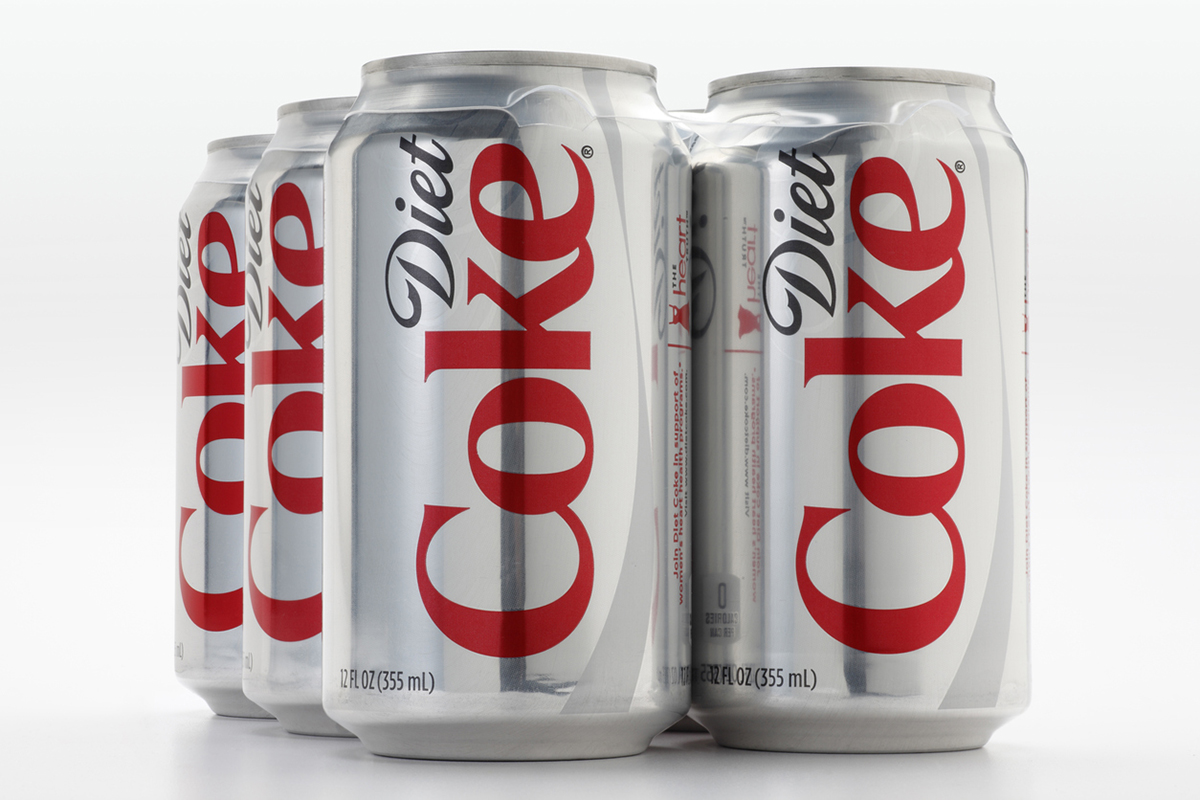Aspartame May Make You Gain Weight, Study Says

Diet Coke photo via istock.com/DNY59
If you think sugar-free is a synonym for healthy, think again.
A new study from Massachusetts General Hospital says aspartame—one of the most common artificial sweeteners, often used in diet soda—may not help you lose weight. In fact, it looks to do just the opposite.
When aspartame is digested, it produces a compound called phenylalanine. In prior research, phenylalanine has been shown to interfere with an enzyme called intestinal alkaline phosphate (IAP), which, when functioning properly, helps to prevent obesity, diabetes, and metabolic syndrome. Since aspartame breakdown produces phenylalanine, the Mass General researchers hypothesized it could very well contribute to weight gain when consumed frequently.
To test that theory, they divided mice into four groups: mice on a normal diet, mice on a normal diet plus aspartame-sweetened water, mice on a high-fat diet, and mice on a high-fat diet plus aspartame-sweetened water. After 18 weeks, the mice eating aspartame and a high-fat diet gained more weight than those drinking normal water. Both groups consuming aspartame had higher blood sugar and more markers of inflammation than the non-aspartame groups.
“Sugar substitutes like aspartame are designed to promote weight loss and decrease the incidence of metabolic syndrome, but a number of clinical and epidemiologic studies have suggested that these products don’t work very well and may actually make things worse,” Richard Hodin, the study’s senior author, said in a statement. “We think that aspartame might not work because, even as it is substituting for sugar, it blocks the beneficial aspects of IAP.”
Past research has also shown that aspartame and other artificial sweeteners may actually make dieters hungrier, ultimately leading them to overeat. And while the FDA maintains that aspartame is safe, speculation about artificial sweeteners causing cancer continues to swirl.
Pay attention, diet soda fiends. Your afternoon pick-me-up may be calorie-free, but that doesn’t necessarily mean it’s without consequences.


